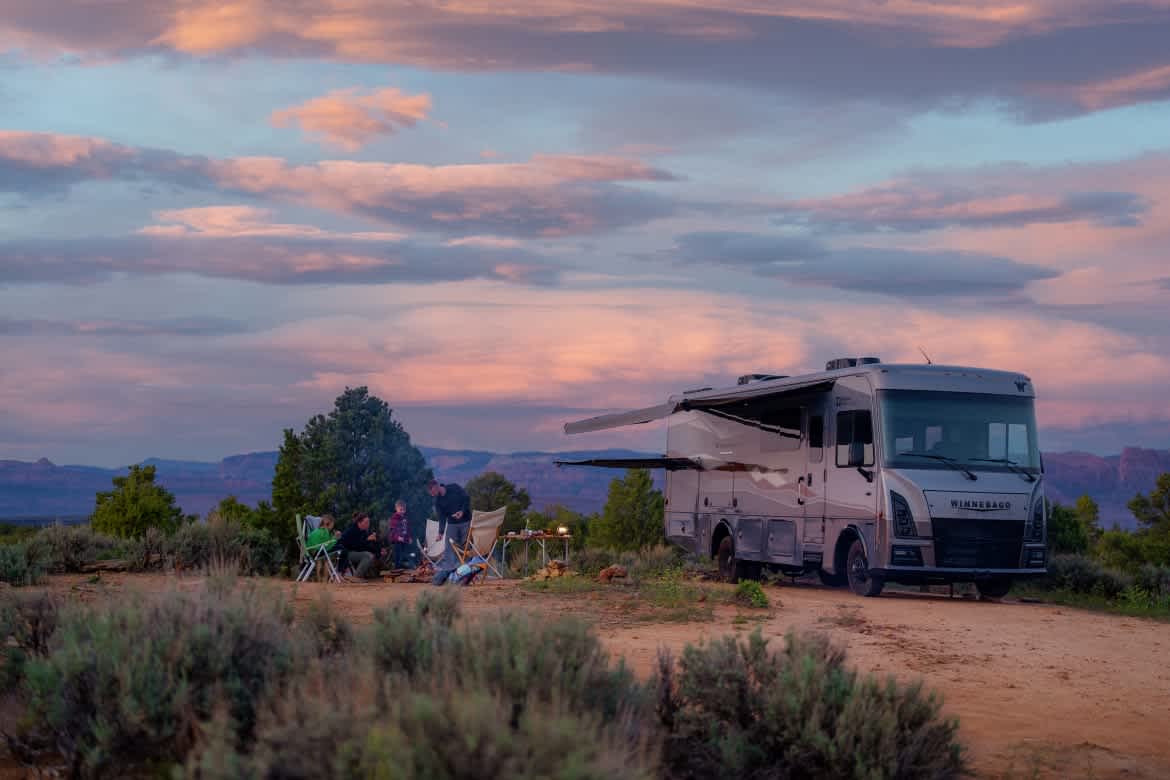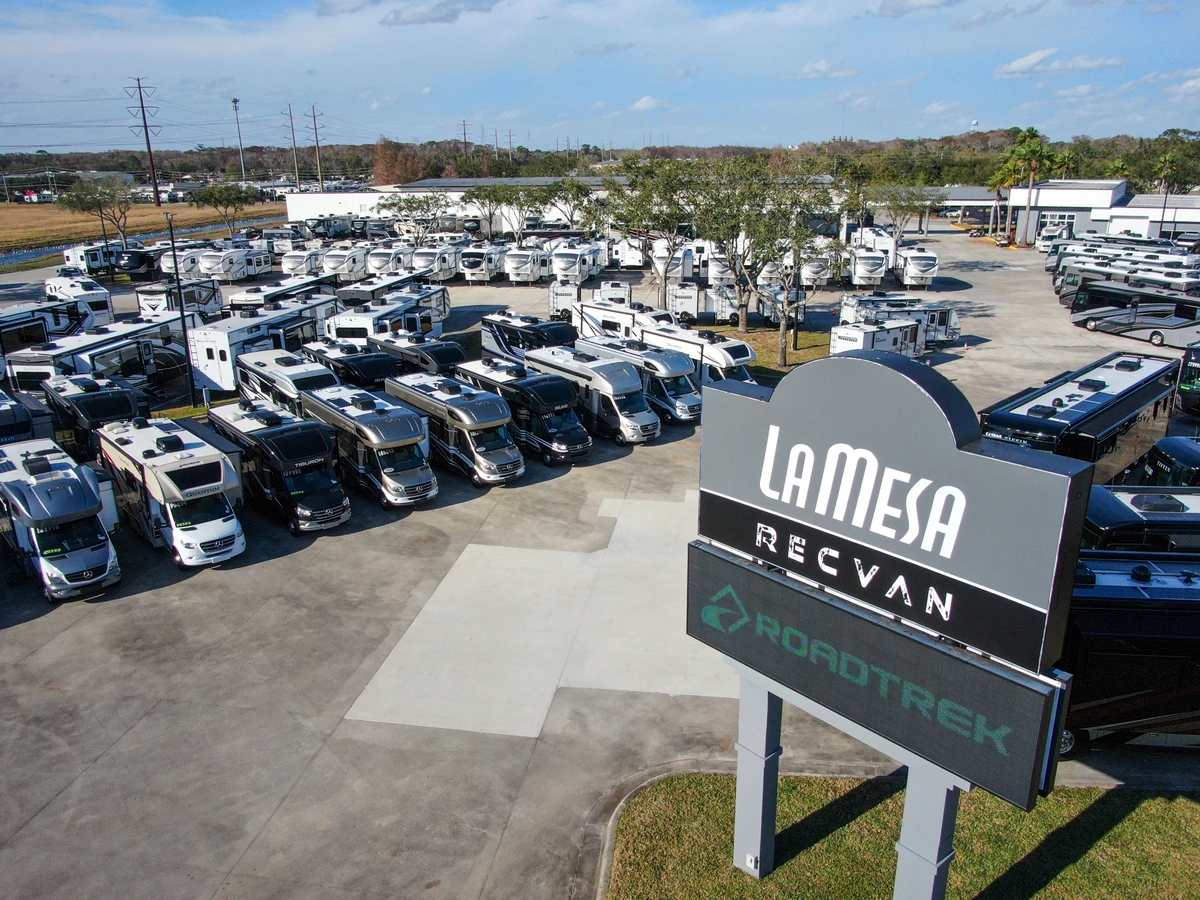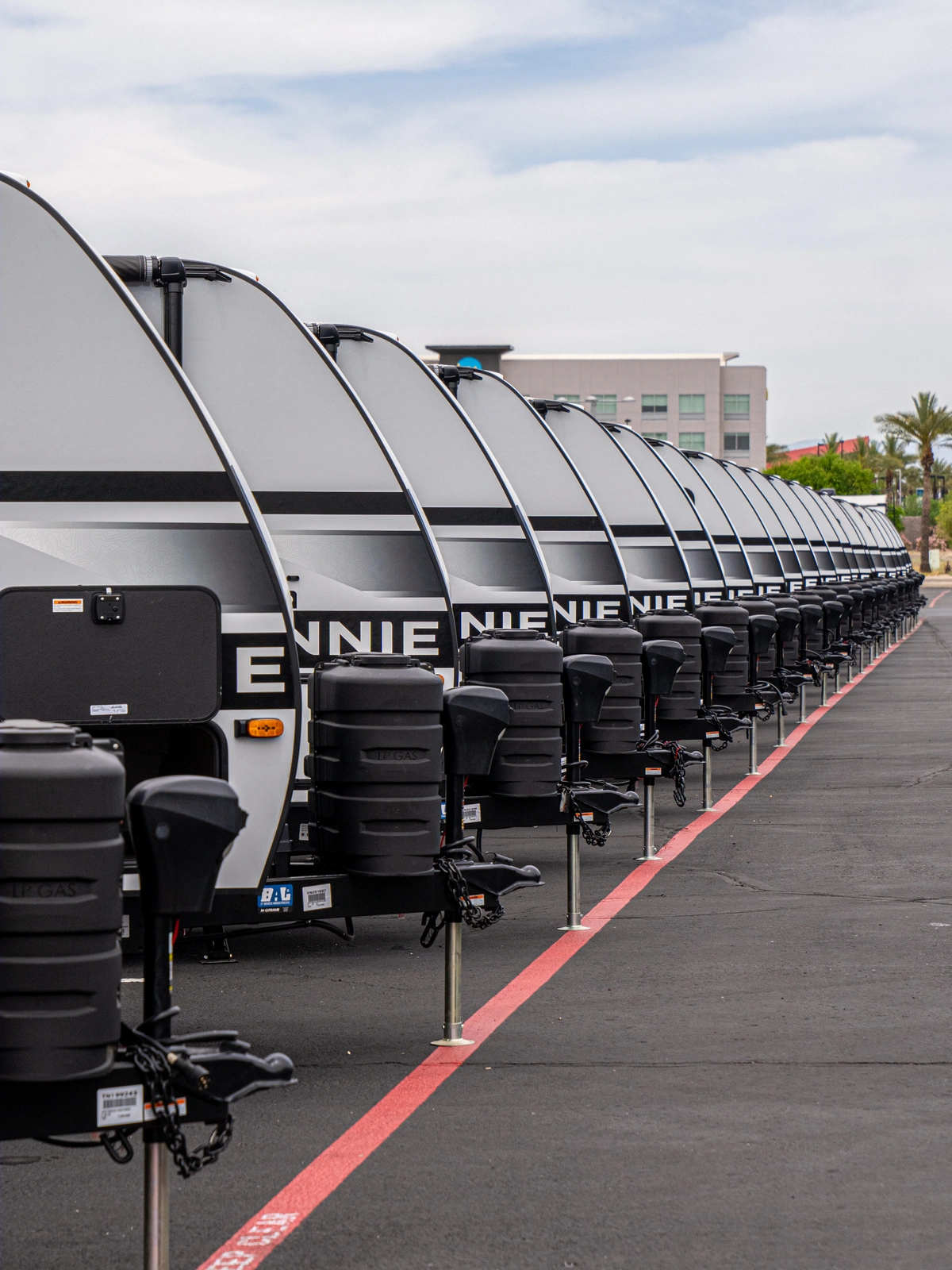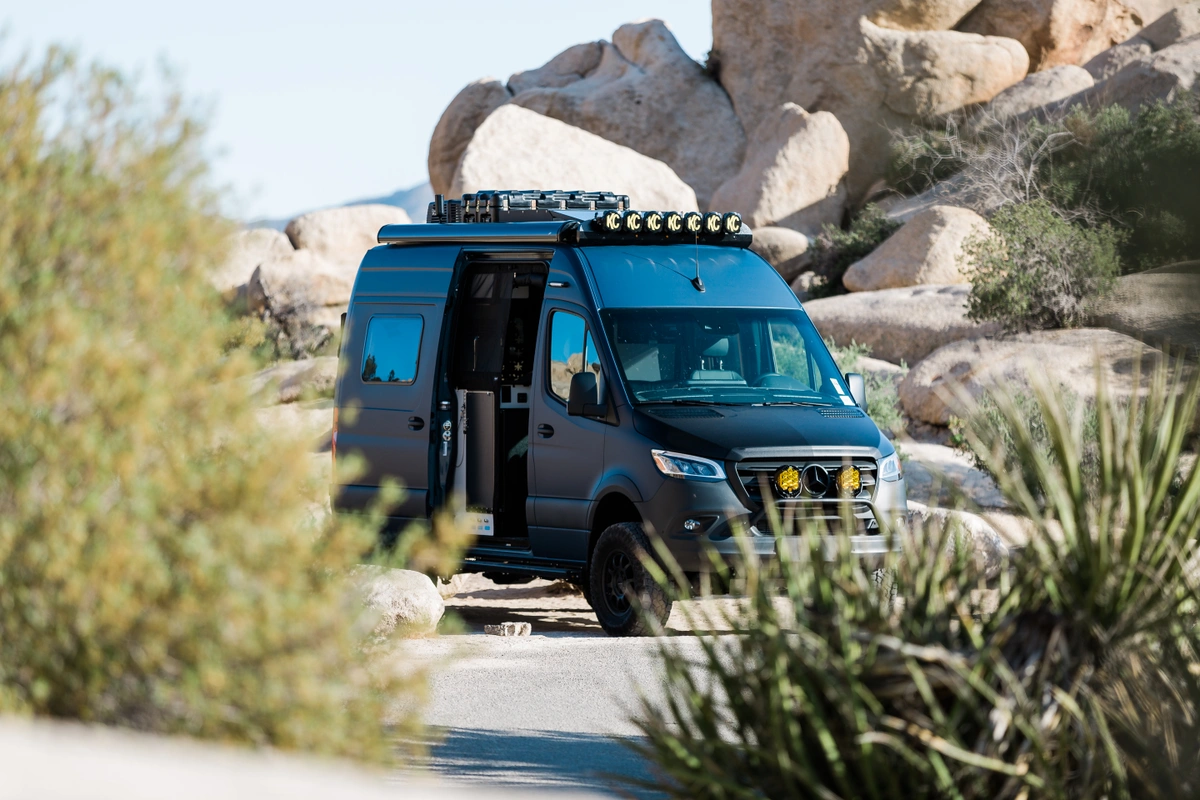Are you considering hitting the open road in an RV? It's a great way to see the country, and with all the different options on the market today, it can be tough to decide which RV is right for you. One of the biggest decisions you'll have to make is whether to go for a smaller rig (think sprinter van/Class B) or a larger motorhome (Class A).
There are a lot of factors to consider when shopping for an RV, and size is definitely one of them. So, what's the right size for you? Let's take a look at some pros and cons of both small and large RVs.
Guest Post and Photos By The Adventure Detour
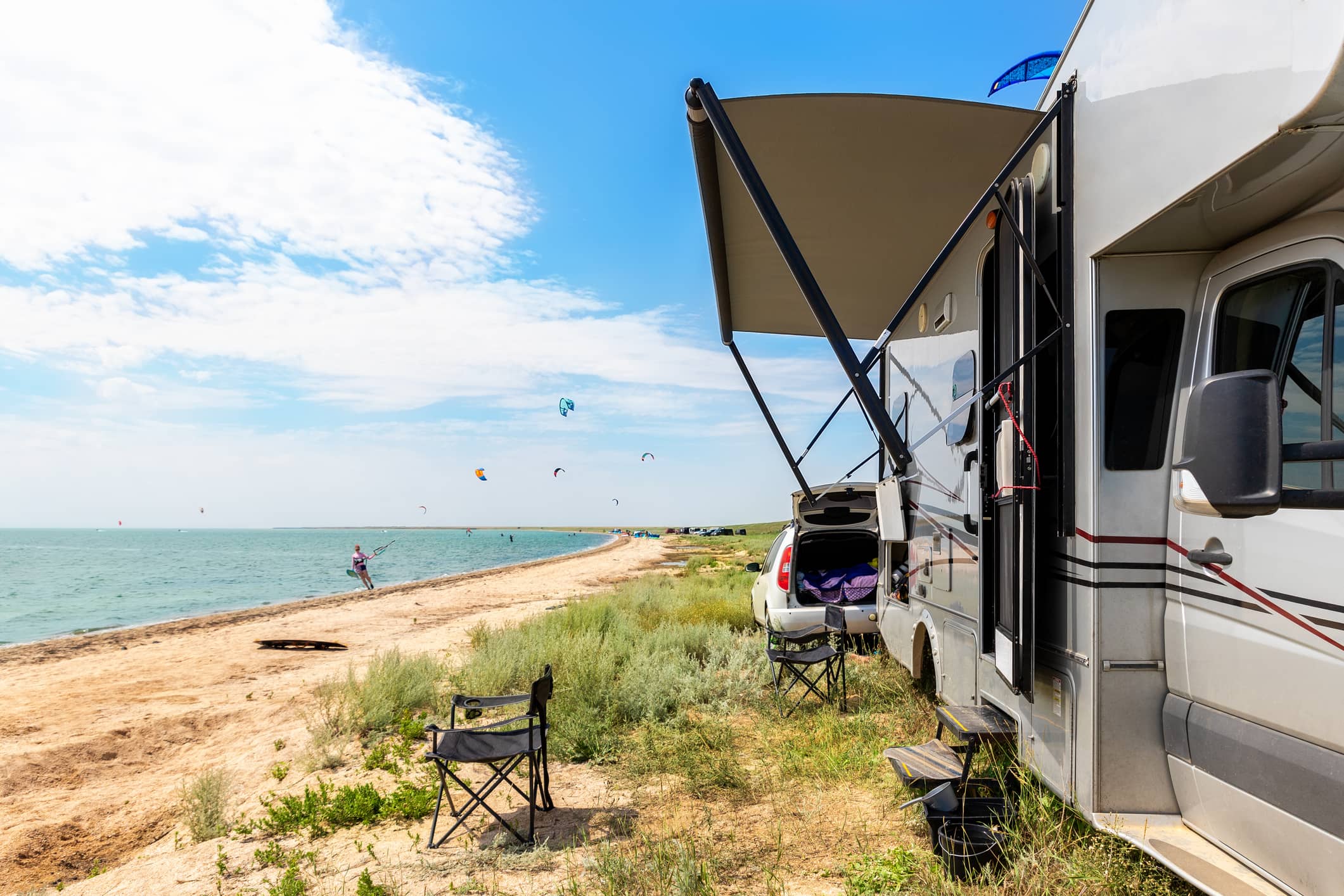
Questions To Ask Yourself When RV Shopping
When it comes to RVs, is bigger really better? Some people might think so, while others may prefer something a bit smaller. There's no right or wrong answer, it all depends on your own personal preferences and what you're looking for in an RV, your RV lifestyle and camping preferences.
If you're considering purchasing an RV, it's important to ask yourself the following questions: What size RV do I want? How much can I afford to spend? And what type of camping trips do I envision taking? By answering these questions, you'll be one step closer to finding the perfect RV for your needs. Keep in mind that there are many different types of RVs out there, from small campers to huge luxury motorhomes, so don't be afraid to explore your options!
Where Do You Want to Camp In Your RV?
Some RV models have gotten much larger over the last decade and have all of the comforts of home you could ever want. However, not every RV campground can accommodate larger RVs. Many campgrounds were built when RVs were a smaller size. Even some campgrounds that have large enough campsites, still have tight turns or narrow roads which are not big rig friendly. It's important to choose a rig that matches your RV camping style, or where you prefer to stay.
National park camping and some state park campgrounds are designed for smaller RVs. In fact, many national park campgrounds have a maximum RV size of 30 or 35 feet for campsites. Often the campsite size requirements are due to heavily treed areas with tight turns. Some older privately owned campgrounds have the same size restrictions.
So it's important to ask yourself what places you would like to camp and what size requirements those places usually have. A large RV size could potentially limit your options for camping locations. This is a huge consideration when RV shopping.
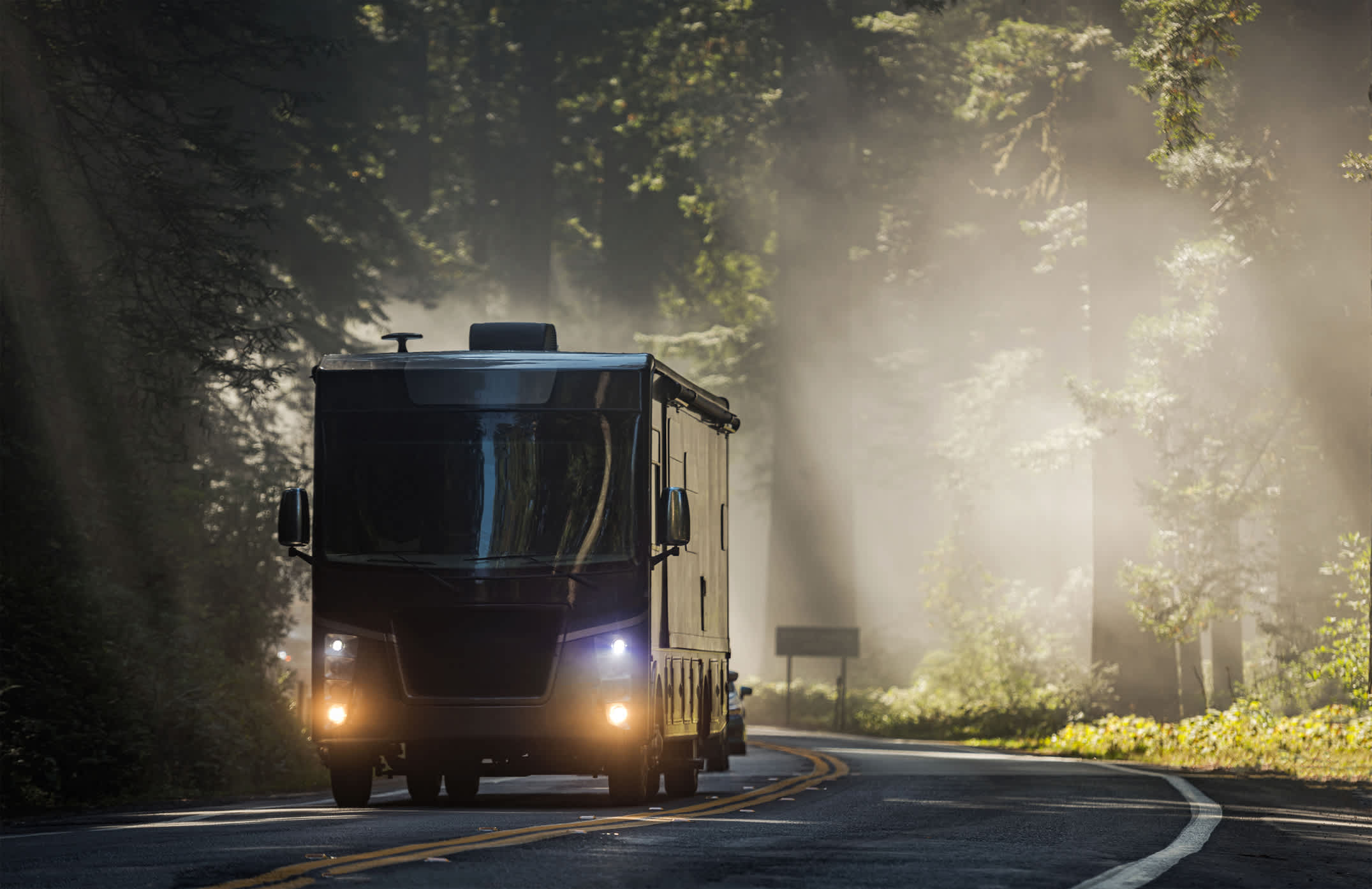
What Size RV Are You Comfortable Driving?
There are many benefits to getting a larger RV such as more storage, a bigger living area, and more sleeping areas. The bigger the RV, the more room for all of those amazing bells and whistles that attract RVers to various models. However, unless you plan to stay stationary in your RV, you have to have a game plan for getting your RV down the road.
It's important to ask yourself what size of RV you are comfortable driving. Safety is always the most important part of RVing and bigger isn't always better if you don't feel confident driving such a large vehicle. Just a few feet of RV size makes a large difference in how an RV handles on the road.
Our first RV was a 40-foot 5th wheel. Our second RV was a 42-foot wide body 5th wheel. The wide body width only added 6" to our RV size but that extra width combined with the 2 extra feet of length, really changed the turning radius while towing. It was shocking how different the driving experience was in the larger 5th wheel. Whichever size you choose, just make sure it is a size that you feel comfortable driving.
Does Your Tow Vehicle or Tow Behind Vehicle Work With A Large RV?
In the world of towable RVs like 5th wheels and travel trailers, the larger RVs are often heavier RVs. With size often comes weight and it is important to make sure the vehicle you plan to tow your RV with has enough towing capacity. For example, our Solitude is a heavier 5th wheel and it requires a larger truck to pull it with. We opted for a dually for added stability when towing, which did drive up the price of the truck quite a bit. Note that some larger towable RVs are lightweight models and that could be another option to meet your needs.
If your RV is driveable like a motorhome or a Class C, you will want to consider what vehicle you plan to tow behind your RV. The larger the RV, the longer your unit will be going down the road with your towable vehicle behind it. Make sure you are comfortable with driving the total length of both vehicles.
What Is Your RV Budget?
Bigger RVs aren't always more expensive but they can be. Consider your budget when looking at different sizes of RVs. Also as we mentioned earlier, the size of towable RVs can also dictate what your tow vehicle must be. Getting a large truck with a higher towing capacity can drive up the price of your total RV setup.
What Are Your Must-Haves In An RV?
One solution to picking the right RV size to meet your needs is to create a list of must-haves and then choose the smallest RV that still meets your needs. It's easy to get caught up in all of the amazing features that are available in RVs today but come up with your must-haves and also your nice-to-haves. Then pair this list with the RV size you think is best to stay in the types of campgrounds that you plan to camp in. Take this information with you when RV shopping and share it with your sales associate. This will help them to find something perfect for you.
Was Bigger Better In Our Choice Of RV?
I mentioned earlier that we have had both 40 and 42-foot 5th wheels during our seven years on the road. As full-time RVers with a child, it can be difficult to find the balance of the right size to make travel easy while also still meeting our daily living and storage space requirements. What's incredible is the huge increase in RV floor plan options since we last purchased an RV. As much as I love our large 5th wheel, we have a goal of switching to a Class A model with bunk beds in the near future. We can't wait to start shopping at La Mesa soon to make this transition a reality.
Now that you have some questions to ask yourself while RV shopping, as well as a few things to consider, it's time for the million-dollar question, was bigger better when choosing our RV? In all honesty, it depends on what your needs are. If you want to camp in national parks, then a smaller RV might be right for you. However, if you like the idea of having extra living space, then a larger RV may be your best choice. Ultimately, only you can decide what size RV is best for your needs and budget! With these tips in mind though, I hope you find the perfect rig for your next adventure!
Whether you are looking for something big or small, La Mesa has the selection you are looking for. Bring your RV wishlist and find your perfect RV today!
Scott, his wife Van, and their 12-year-old daughter Sissy have traveled full-time in their RV for 7 years. They have worked and homeschooled on the road through 42 states so far. They blog about RVing tips, travel destinations, and the full-time RV lifestyle on their blog, TheAdventureDetour. They are also RV content creators @theadventuredetour on Instagram, TikTok, and Facebook. They love connecting with RVers so be sure to reach out to them and say hi!
